Even as I start to type this, I realize that I’m about to dive into the deep end of a filthy, unchlorinated public pool of hypocrisy. And then I’m going to swim around a bit. I feel like I’m being hypocritical because one of the Founding Ideals of this site is that anyone and everyone is welcome, no matter how miserable or boring or obscure or perverse their car obsessions are. And I believe this, with every rusty nut in my soul. At the same time, I think it’s okay to express opinions about cars, even negative ones, because, well, that makes life interesting. Hell, I even let our crankiest, most acerbic writer lambast one of my favorite cars ever, and sure, I also wrote a rebuttal, but the point is sometimes it’s just cathartic to lambast a car, especially one with such a huge following. And that’s what I’m going to do right now, as I tell you that if I learned a drunk, hungry wizard appeared and turned every ’57 Chevy into a nice corned beef sandwich, I’d be just fine with that.
The 1957 Chevy – part of the “Tri-Five” series of cars from 1955 to 1957 – is arguably the most iconic “American” car. I have American in quotes there because it’s not really America – it’s the icon of this idealized 1950s America, the source for what people call Americana, and all of the hokey, overplayed, tired miasma that surrounds it. For a classic car pushing 70 years old, there’s still a shocking amount of them around. About 1.5 million of these were made, and to their credit, it feels like most of those are still kicking, taking up way too many spots at classic car shows, surrounded by those creepy upset kid dolls and with open trunks showing old window stickers and newspaper clippings.
It’s not like the ’57 Chevy was such a bad car – it wasn’t – but it wasn’t that great a car, either. Sure, they had the legendary 265 cubic inch V8 that was introduced in 1955, but the overall engineering was about as unimaginative as you can, ironically, imagine. They handled about as well as most 1950s big American cars, which is to say lousy, like moving a couch on a furniture dolly. You could get them in like 19 different body styles and literally hundreds of two-tone and solid color combinations, and while that’s great and all, I can’t fathom why these became the default 1950s car over any number of their contemporaries.
I mean, when you want a Hawaiian shirt with cars on it, for reasons maybe you don’t feel comfortable admitting, chances are you’ll get something like these:
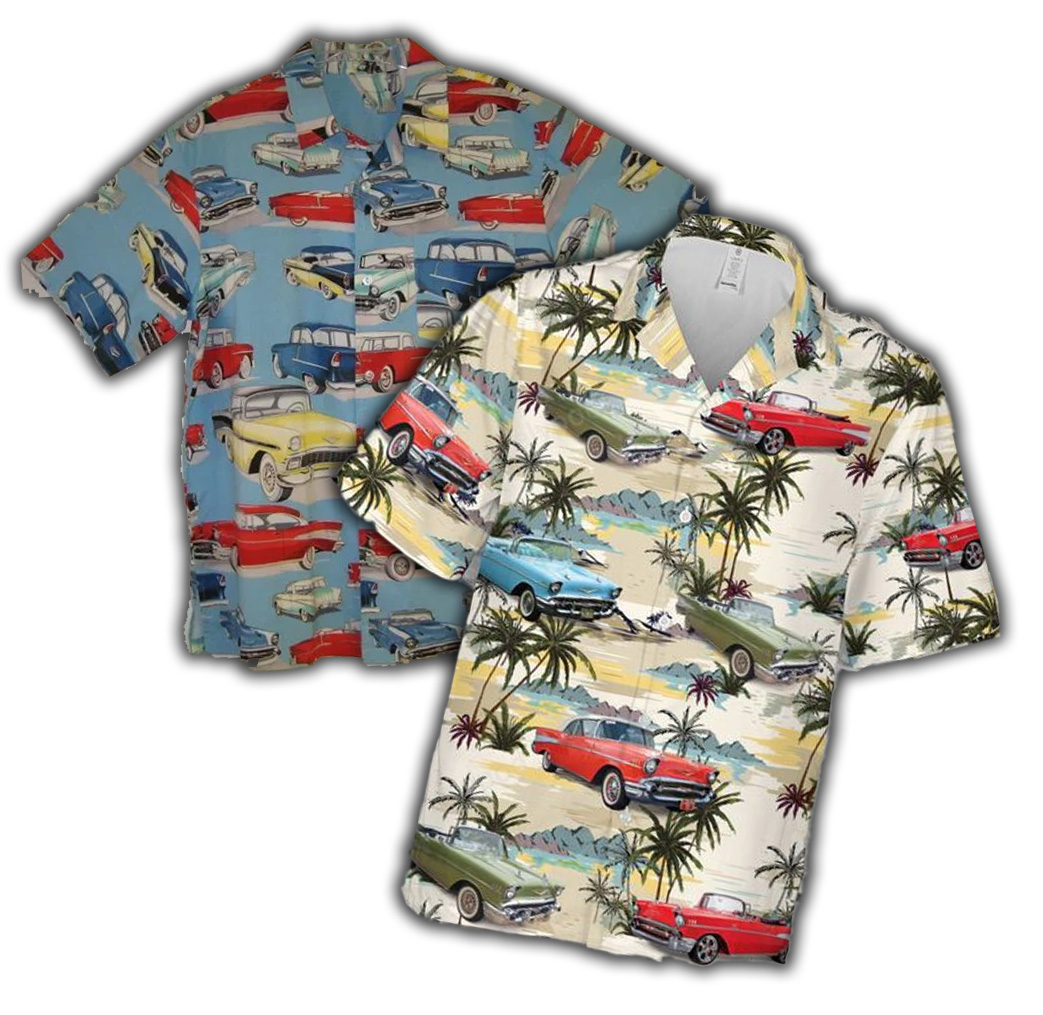
They’re covered in ’57 Chevys (and maybe some ’56s?), Bel Airs, convertibles, the occasional (and more interesting) Nomad, but all still these same cars. Sure, you can find shirts with other cars, but the dominance of the ’57 Chevy can’t be denied. Or justified, as far as I’m concerned.
I just don’t get why this happened? How did this one particular car get to be so dominant, develop such a colossal fanbase, establish such a massive aftermarket industry, and just come to dominate the mainstream classic car community for so damn long? How did this car end up with its iconic status to the point that it’s become essentially synonymous with ’50s America, and almost the expected follow-up any time anyone even says the year 1957?
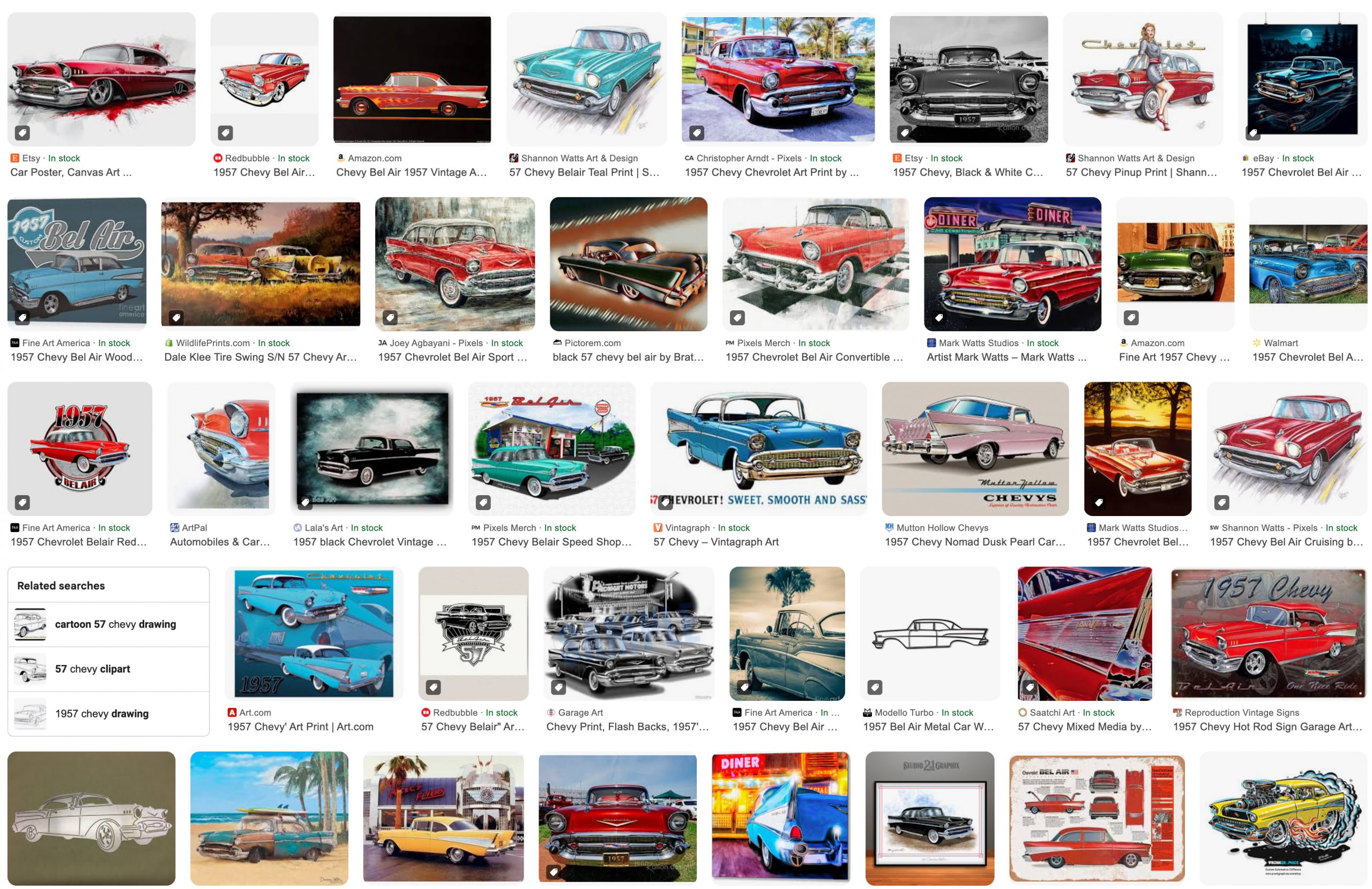
There’s certainly other cars with rabid followings and strong associations with a particular time and place and culture and representations in art and Hawaiian shirts and all that, of course. The Beetle comes to mind. But the difference there is that when the Beetle grew in popularity and became an automotive icon in the 1960s and 1970s, at that time, it was somewhat unique in the mainstream culture, at least in America. It was foreign, small, weird, technically strange, and an outlier amongst the mainstream cars around at the time. It stood out. It became popular as a reaction against mainstream culture, which sort of makes its eventual climb to fame more understandable.
But the ’57 Chevy? I mean, it was fine, but was it really all that different than its big competitors of the era? Why did this car:
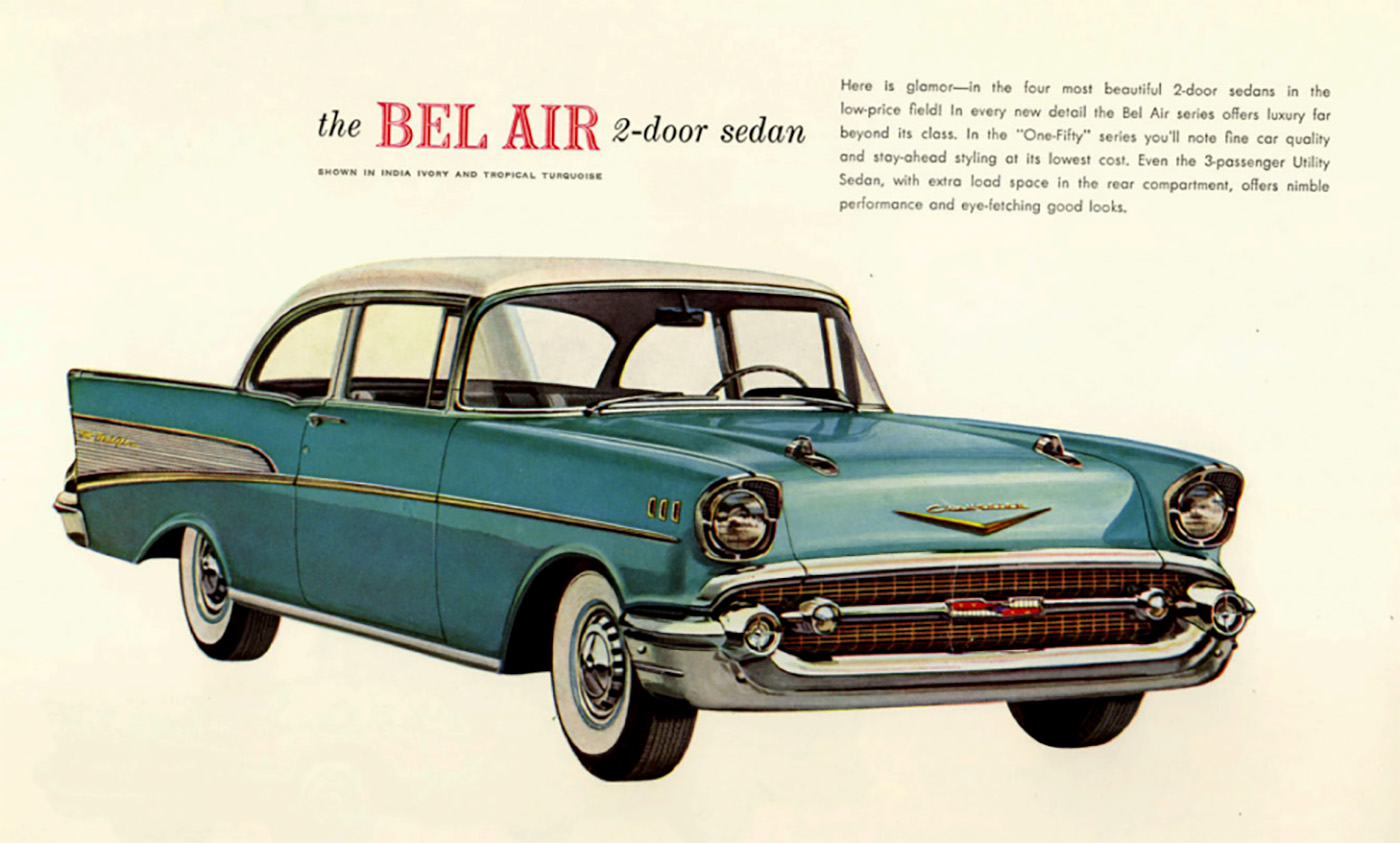
…get so much more fame and notoriety and lasting legendary status over, say, this car:
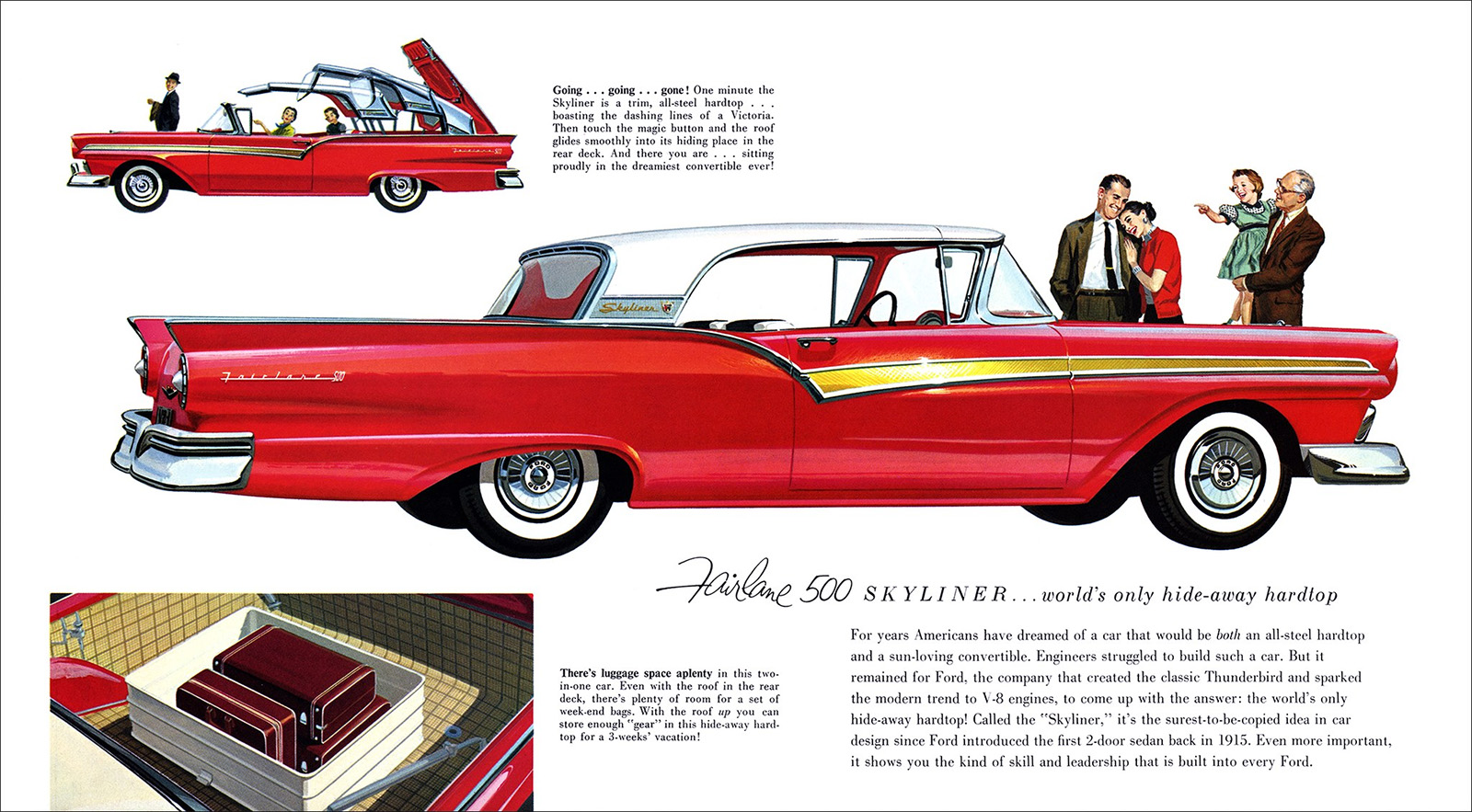
Ford actually outsold Chevy in 1957, even. And sure, there’s plenty of love for these cars, but it doesn’t quite reach the ethereal status of the Chevrolet. Or what about one of these:
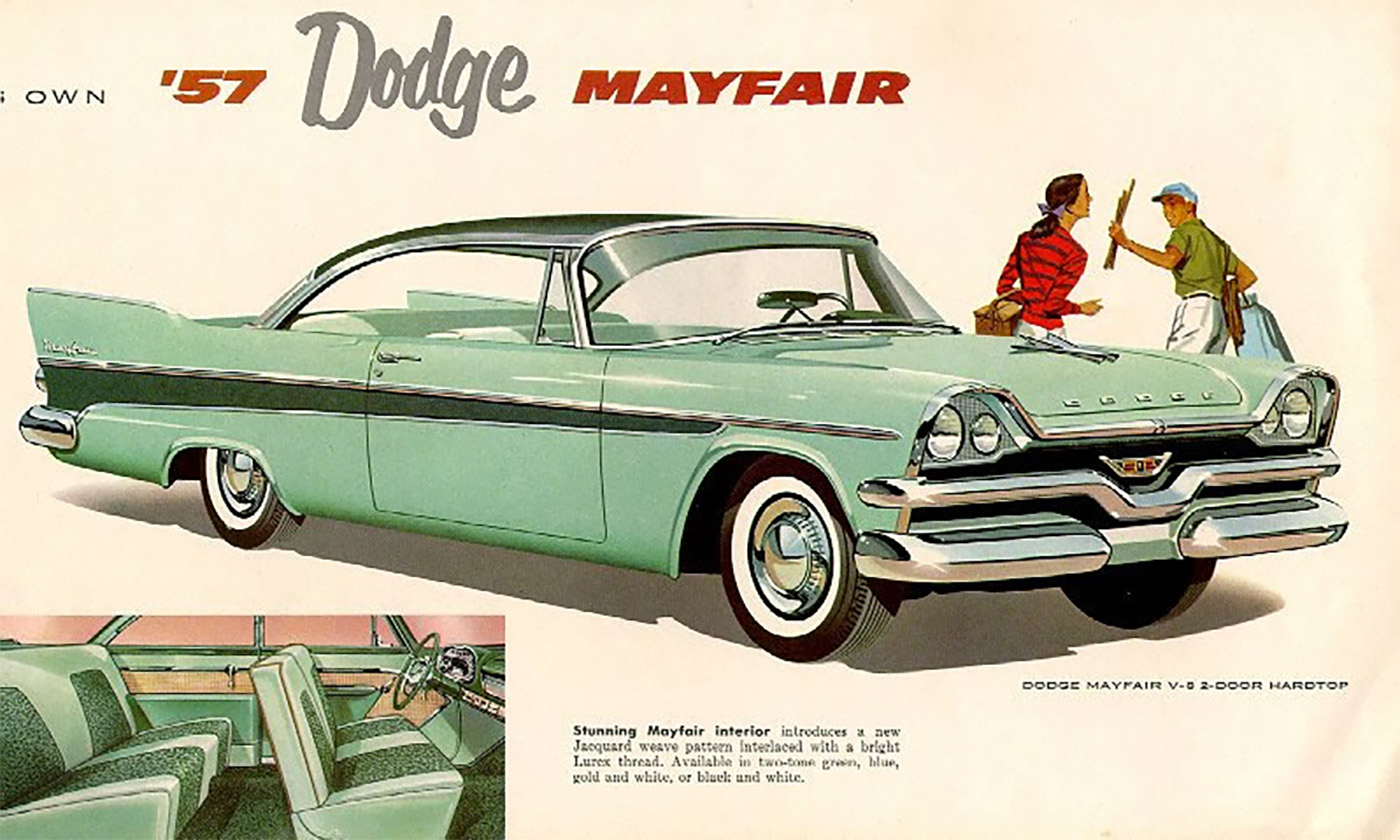
Dodge certainly had the same sort of over-exuberant jet-age styling as the Chevy, and was maybe even more exaggerated. Hell, even the Nash had a similar sort of dual-fuselage jet-type hood ornament as some of the Chevys:

But, of course, none of these cars reached the level of the Chevy. And they’re just not that different. I mean, sure, there’s plenty of differences, but we’re not talking differences like what the Volkswagen was to American cars of the time. There are differences in details and trim and specs, but if you had to describe all of the cars I showed here just now in general terms – big V8 heavily chromed two-tone sedans with Paleolithic chassis designs – it would apply equally well to any of them.

What’s also surprising is how much the designers of the ’57 Chevy seemed to, well, not like the car. The 1957 model was supposed to be all new, but the new design wasn’t ready, so Chevy’s design team had to tart up the ’56 as best they could to make it feel new and different. The roof and doors and rear deck are carryovers from ’56, but there was a lot of pressure to make the ’57 look different. This Hemmings article notes how the designers felt about the car:
One man who worked on designing the ’57 Chevy is Robert Cumberford, who today lives in France. He distinctly remembers that not a single person who worked on the 1957 car liked the design. He recalls working 84-hour weeks with others in a crash program to design the ’57 model and that Harley Earl wanted the car to look as big as possible. To accomplish that, stylists stretched the fender profile to an extreme length, pushed the headlamps as far apart as possible and took the grille across the entire front end.
You can see how widened everything is, the grille, the lights shoved as far to the edges as possible, all to make the car look as massive as possible. These changes seem sort of bonkers when you look at the ’56, which was already an incredibly wide-looking car:
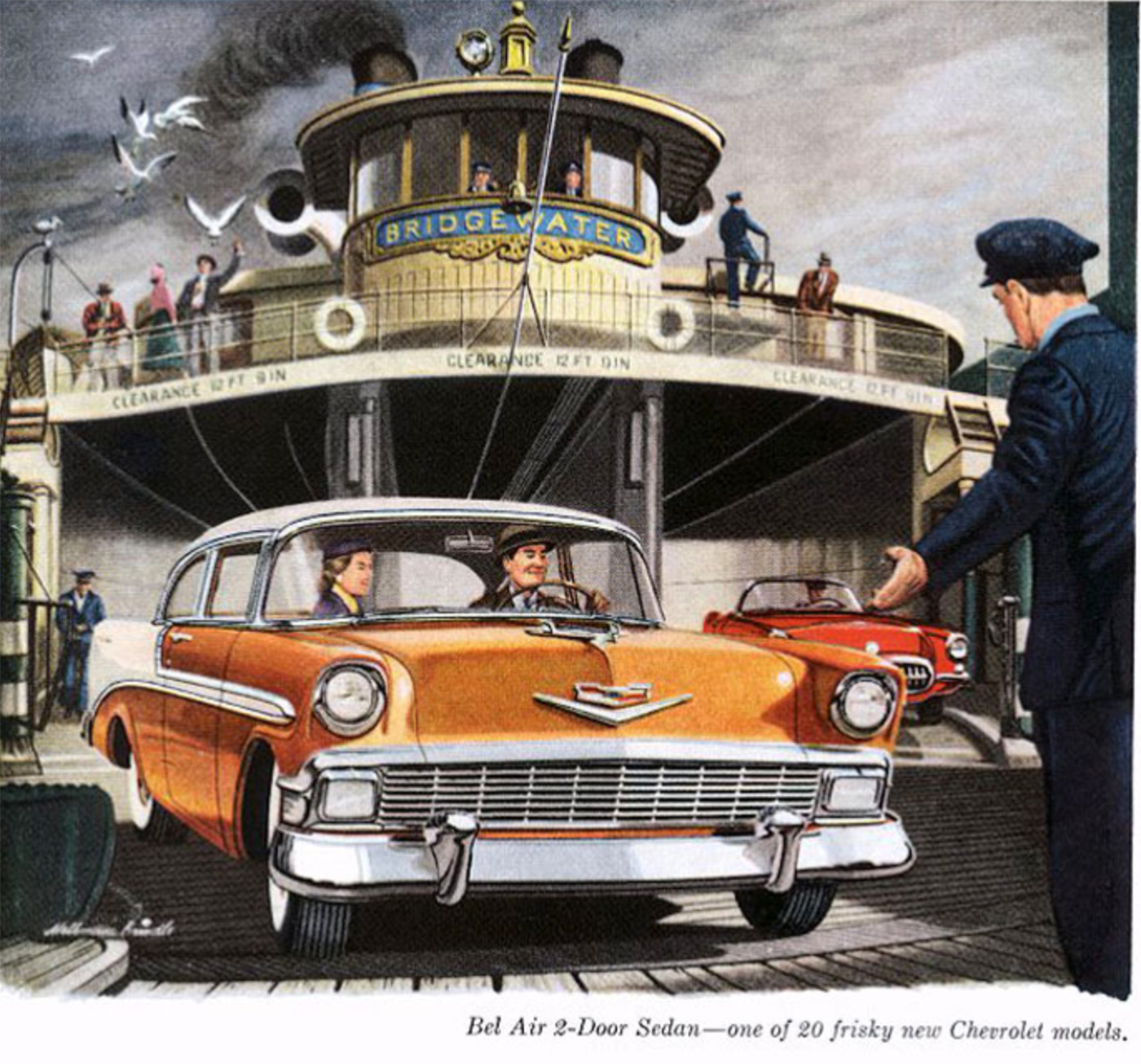
The designer mentioned above, Robert Cumberford, actually once commented on a Dean’s Garage story, where he found an old sketch he did for the 1957 redesign – which he described as an “emergency re-style”: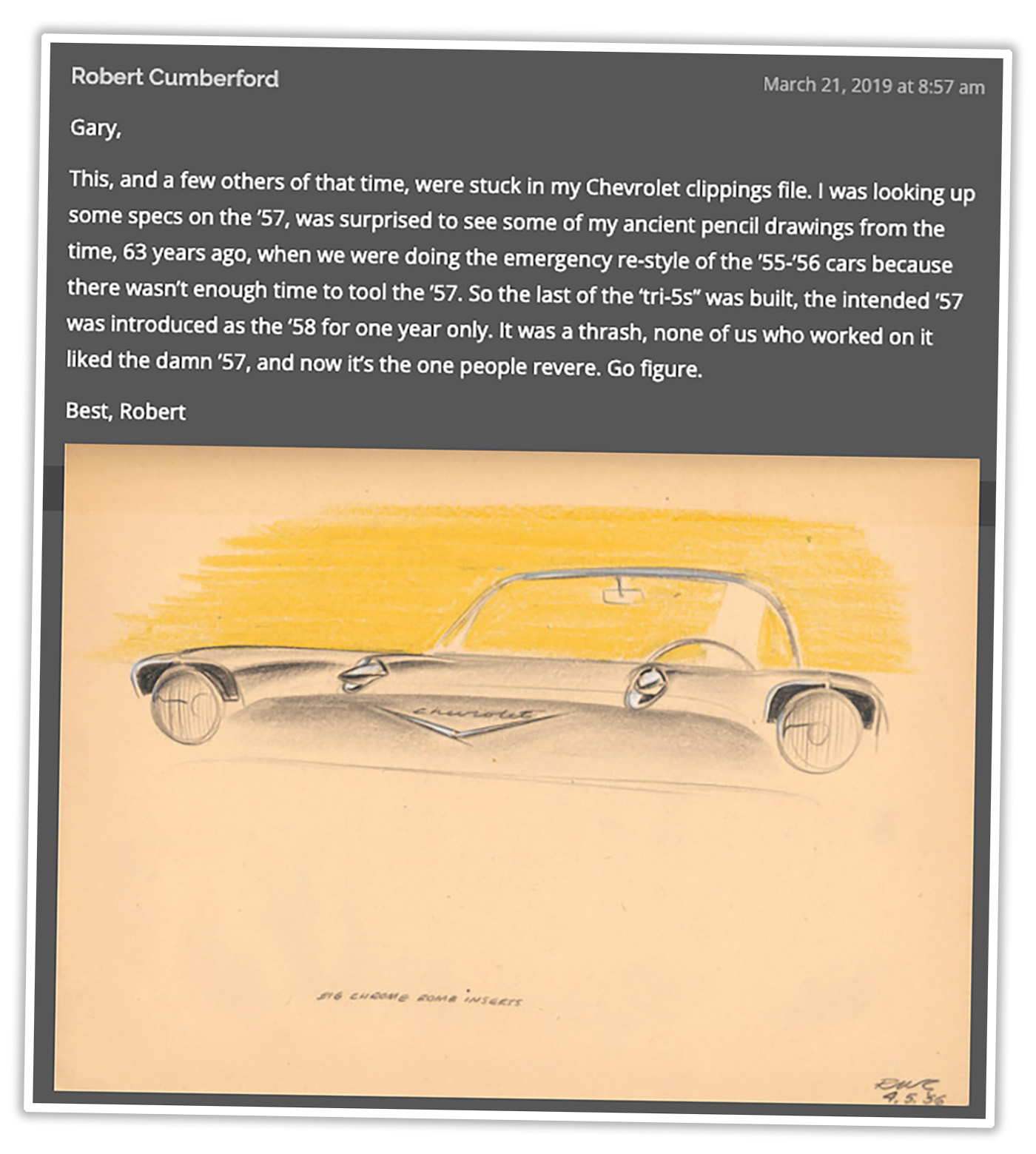
He says directly that
“It was a thrash, none of us who worked on it liked the damn ’57, and now it’s the one people revere. Go figure.”
Again, this was one of the people who designed the damn car.
But I have to be honest – I don’t think the car is all that bad, really. And I like the two-door wagon Nomad version, especially.
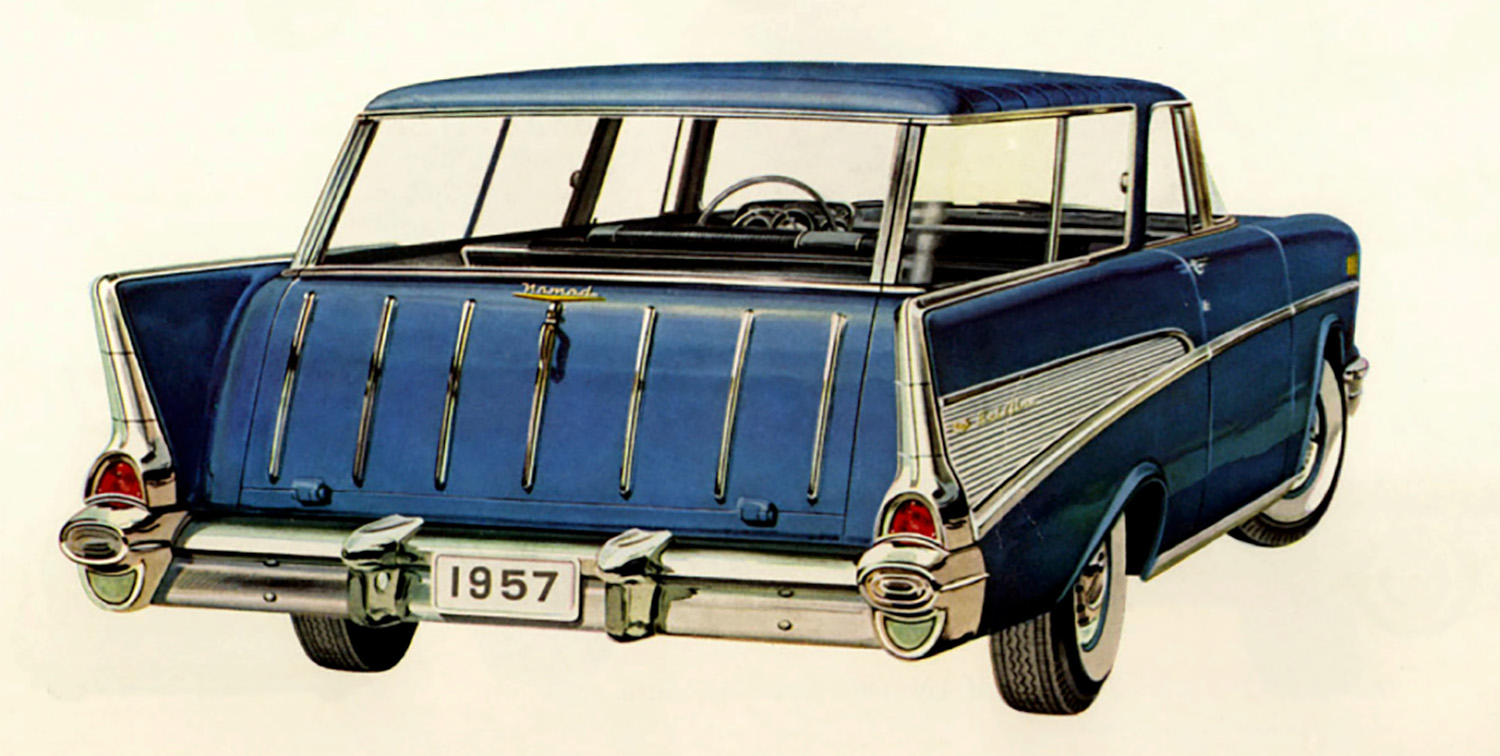
But that said, I cannot fathom why this particular year and model ended up becoming so wildly dominant in the classic car scene. I remember so many local car shows that seemed to have rows and rows of these things, and I’ve seen them on so much bad art that romanticizes Route 66 and paints in James Dean and Marilyn Monroe in front of ’57 Bel Airs, and I’m just sick of them. I don’t get it! I never have, and I likely never will.
I feel like in recent years the saturation of ’57 Chevys is abating a bit, as the population that really latched onto them is getting older and less likely to take them out. I’m not exactly sure how the market is for these things still – it seems pretty steady, maybe with a slight decline – but I can’t help but think we’re only a few decades out from a time when the last of the people who genuinely give a crap about these cars has died off, and there will be a massive glut in the market of unwanted ’57 Chevys, complete with stacks of Hawaiian shirts and trunks full of award plaques.
Maybe then I’ll get interested, when they’re so cheap and undesired that you can buy one for pimples and cram in the drivetrain from a Nissan Leaf and use it as your electric around-town car, or something. Who knows.
What I do know is that if I never see another ’57 Chevy again, I think I’ll be just fine. I’m happy to hear all the arguments why I’m not just wrong, but wrong and ugly, and deep down I know I have the abuse coming. But I just couldn’t keep quiet any longer.
Top photo and all images: Chevrolet unless otherwise noted








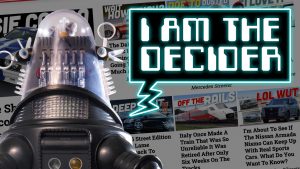
k